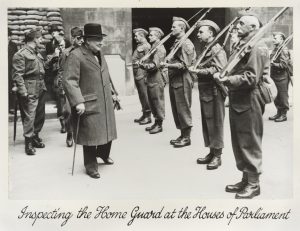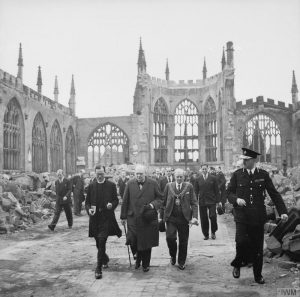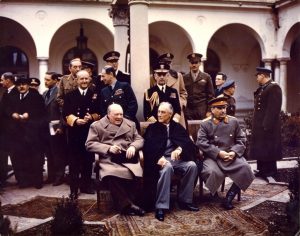
StoryElement
Daily Telegraph 15 Oct 2015, ‘Curse of short-termism’

Winston Churchill, Parliament Square, London © Sue Lowry & Magellan PR
January 1, 1970
The Curse of short-termism, published in the Daily Telegraph on 15 October, 2015
‘SIR – Churchill said “the future is unknowable but the past should give us hope”. It is time to garner this hope. Yet right now we are not cutting it.
We must equip the next generation of leaders with new skills and experience across disciplines. This is the overall conclusion from 16 reports just published for the Churchill 21st Century Statesmanship Global Leaders Programme.
We are witnessing simultaneous crisises of leadership nationally and globally. We should take note when seasoned diplomats such as Sir Christopher Meyer and Sir Jeremy Greenstock warn that we are at the most worrying time they can recall, and that only unprecedented subordination of national interests to the wider common good will prevent a violent shattering of global peace.

2024 International Churchill Conference
Both the Pope and the American President recently issued stark alerts over the threat to the human race posed by climate change. Lord Sacks has warned of a growth in “religious” violence unless we devote more effort to the propagation of respect for others and counter those who spread hate.
Protecting the environment, making progress in the Middle East, and reducing mass migration and social inequality are “really big” issues. They demand new models of leadership. The top-down style of Sir Winston Churchill has largely gone. We are almost all both leaders and followers now.
Five points from the reports show an urgent need to equip future generations with the skills required for modern leadership.
1) We have to concentrate on strategic and long-term, rather than short-term and election-driven issues.
2) The West must recover its values, harnessing soft and smart power in cleverer ways and rebuilding credible forces matched with credible resolve.
3) Our democracy is stuck in a bygone age. It needs a radical reboot. Trust, legitimacy and imagination will define good leaders.
4) The association of religion and political identity has been badly understood by political elites in the West. Seeing religion as a barrier to peace and modernity has been dangerously naive.
5) Leaders must be digitally savvy and be prepared for much more technological disruption.
We can do with some of Churchill’s vision, courage, team-building and enthusiasm for new technologies in an attempt, in his words, to “make this muddled world a better place”.
Brigadier Nigel Hall Project Director, Churchill 21st Century Statesmanship Global Leaders Programme, London WC1.
Subscribe
WANT MORE?
Get the Churchill Bulletin delivered to your inbox once a month.




